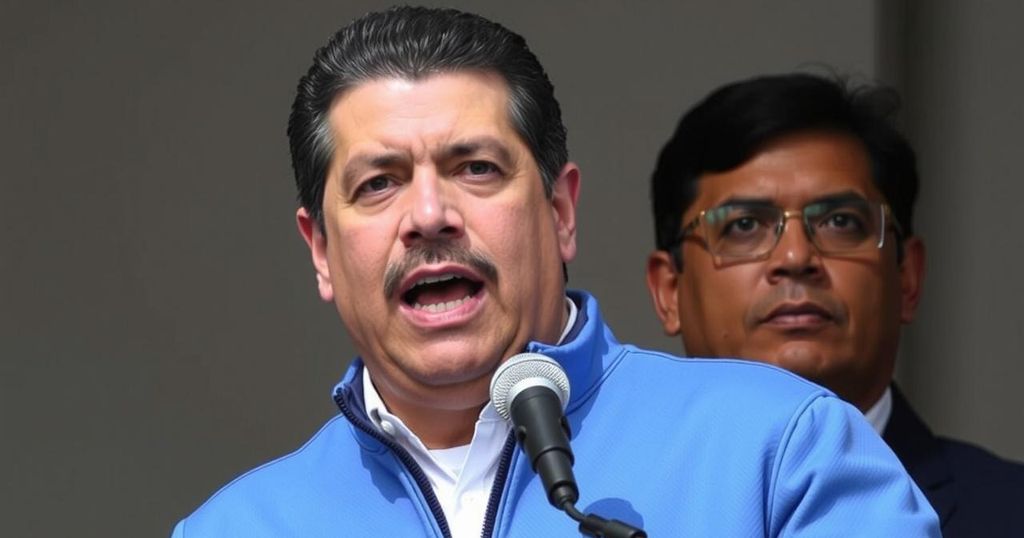Nicolás Maduro was sworn in for a third term amid election disputes. The U.S. extended protections for Venezuelans and El Salvadorans. The Israeli military struck Yemen after drone attacks while the Biden administration imposed sanctions on Russia’s energy sector.
On Friday, Venezuelan President Nicolás Maduro was officially sworn in for a third term amid controversy surrounding the legitimacy of the election results. This event drew attention as it marked a significant moment in Venezuela’s ongoing political turmoil. Concurrently, the Biden administration extended Temporary Protected Status (TPS) for numerous Venezuelans and El Salvadorans residing in the United States. This decision aims to provide a measure of safety for those fleeing socio-economic instability in their home countries. Additionally, tensions escalated in the Middle East as the Israeli military targeted sites in Yemen in response to drone attacks launched against Israel by Houthi forces. In a significant foreign policy announcement, the Biden administration also imposed new sanctions aimed at Russia’s energy sector, reflecting ongoing geopolitical challenges.
The situation in Venezuela has been increasingly fraught with political instability, particularly following recent elections that were widely deemed as controversial and lacking in transparency. President Maduro’s re-election, which critics argue was marked by irregularities, has been met with widespread condemnation and a lack of recognition from several international bodies. The U.S. government’s decision to extend protections for Venezuelan and Salvadoran nationals highlights the humanitarian crisis affecting millions in the region, stemming from economic collapse and violence. In parallel, the diplomatic relations in the Middle East remain volatile, with military actions and counteractions underscoring regional tensions. Moreover, the sanctions against Russia signal a continued international stance against its actions, particularly in relation to energy markets.
In summary, the swearing-in of President Maduro is emblematic of the prolonged crisis in Venezuela, coupled with an ongoing humanitarian response from the United States concerning affected nationals. The escalation of military actions in Yemen further complicates Middle Eastern relations, while sanctions against Russia represent a significant approach to maintain pressure on its energy sector amidst international discontent. The confluence of these events illustrates the intricate web of global politics and humanitarian issues that continue to evolve.
Original Source: www.thirteen.org






